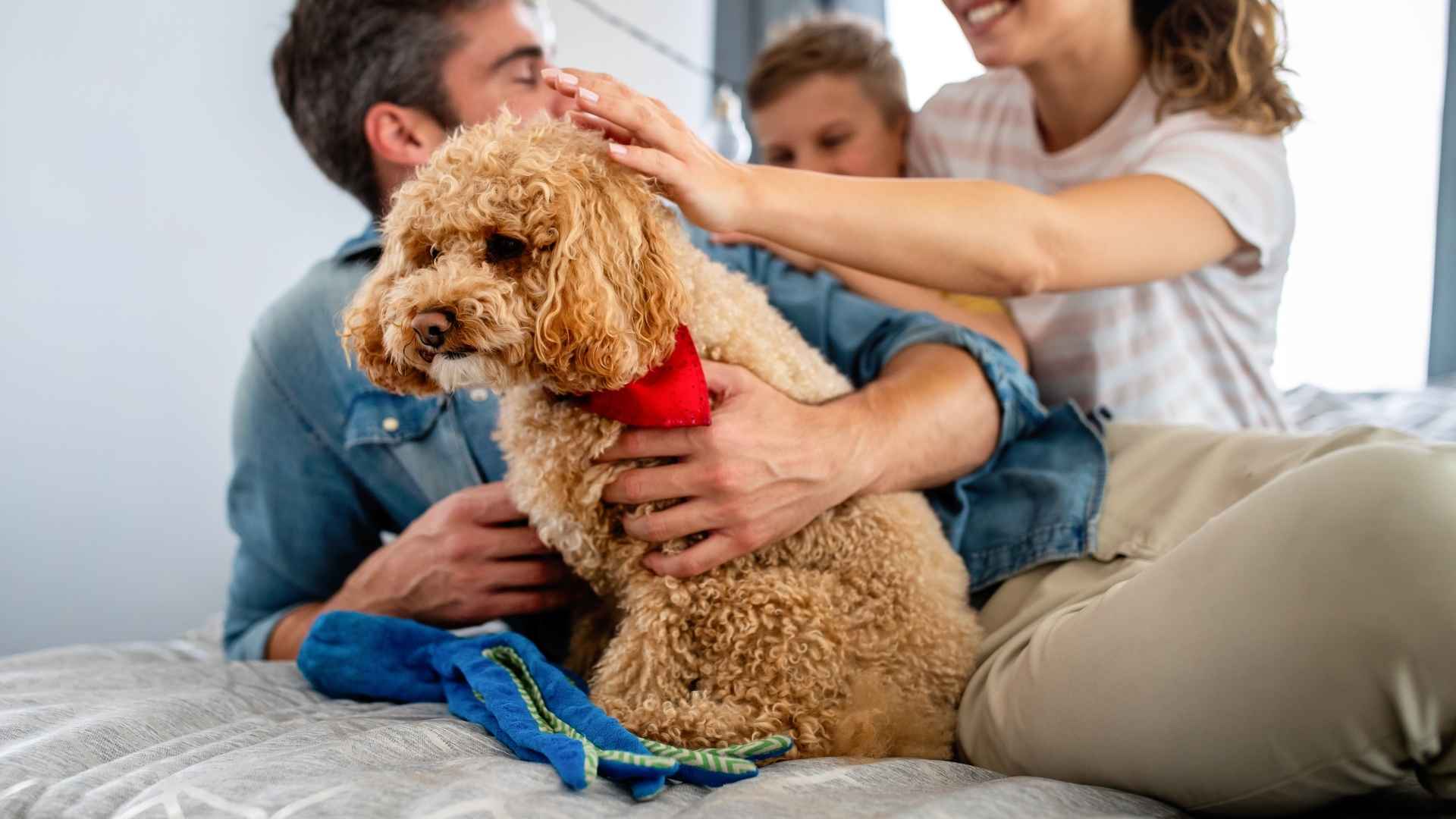Bringing a dog into your family isn’t just about adding a pet; it’s about gaining a loyal companion, a source of joy, and, in many cases, a gentle healer. Dogs offer countless emotional and physical benefits, from encouraging daily exercise through walks and playtime to filling homes with unconditional love and affection. That wagging tail at the door after a long day has the power to brighten even the darkest moods.
However, when children are involved or emotional support is a priority, not just any breed will do. Certain dogs possess special qualities, calm temperaments, empathy, patience, and a strong desire to bond with humans, which make them ideal for family life and therapy roles alike. These breeds can offer comfort to kids, support family members facing emotional challenges, and even participate in therapeutic visits to schools, hospitals, or nursing homes.
In this article, we’ll explore the best family therapy dog breeds, those that not only fit seamlessly into a loving household but also have the right disposition for offering emotional support and uplifting anyone who could use a little extra love.
Family Therapy Dog Breeds
1. Golden Retriever

Golden Retrievers typically have a gentle and kind temperament, often being friendly with kids, other animals, and even unfamiliar people. When it comes to family-friendly therapy dogs, the Golden Retriever consistently ranks at the top. Their loving disposition, intelligence, and desire to please make them exceptional emotional support animals, especially in households with children.
These sturdy, medium-to-large dogs enjoy being close to people and often engage in playful activities like fetch, which can be therapeutic and fun for kids during visits. PetMD states that while they need regular exercise and outdoor space to burn off energy, they are equally content curling up beside their humans, offering comfort and companionship.

Temperament
Golden Retrievers are affectionate, patient, and remarkably attuned to human emotions. Their gentle nature allows them to form strong bonds with all members of the family, from toddlers to seniors. Naturally social and eager to please, they thrive in environments where they receive love and attention.
Their trainability and calm demeanor make them ideal for therapy work, as they’re quick to learn commands and remain composed in new settings. They’re the type of dog that leans in for affection, sometimes nudging you for extra pets.
Fact: Golden Retrievers are especially effective therapy dogs for children and teens due to their friendly personalities, emotional sensitivity, and love for being the center of attention.
2. Poodle
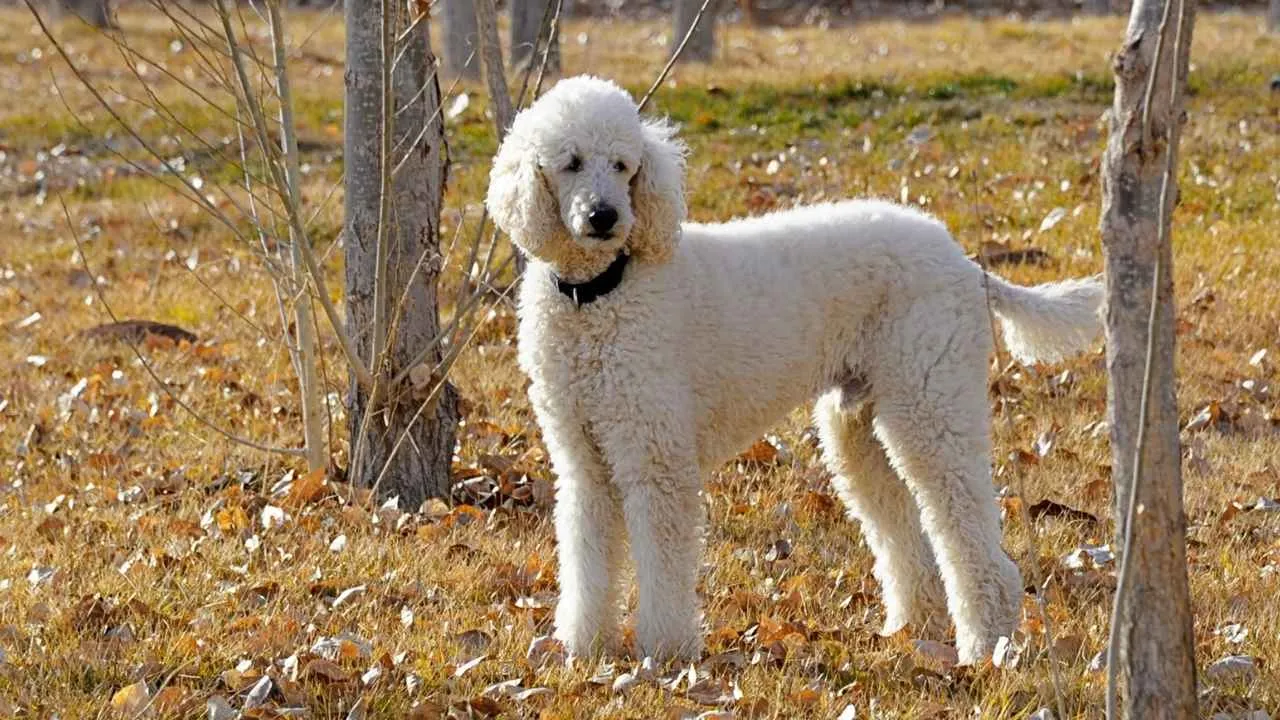
Standard Poodle is energetic, confident, and highly intelligent. The AKC notes that the Poodle is also a top contender when it comes to family therapy dog breeds, thanks to its intelligence, affectionate nature, and versatility. Available in three sizes, standard, miniature, and toy, this breed can adapt to different living spaces and family dynamics.
Regardless of size, Poodles are known for forming strong bonds with their families and are particularly effective at sensing emotional shifts, making them excellent candidates for therapeutic environments. Their presence is often soothing, and they need proper training so they can quickly learn the skills required for therapy work.
Temperament
These emotional support dogs are highly intelligent, alert, and people-oriented dogs. They thrive on interaction and are eager to please, which makes them easy to train and responsive to emotional cues.
Their calm yet playful demeanor allows them to connect effortlessly with children and adults alike. While they enjoy mental stimulation and active play, they’re also content to sit quietly with someone in need of comfort. Their intuitive and empathetic nature makes them ideal companions in emotionally sensitive settings.
Fact: Poodles are one of the most hypoallergenic breeds due to their low-shedding coats, making them a great option for families with allergy concerns.
3. Labrador Retriever

Labrador Retrievers are very energetic and require multiple hours of exercise each day. They love activities like running, swimming (including dock diving and dog surfing), and are tireless when it comes to retrieving. Labrador Retrievers have a friendly disposition, trainability, and a deep desire to connect with people.
Britannica suggests that their innate sensitivity and calm nature make them excellent companions in therapeutic settings, especially for children and individuals dealing with emotional challenges. Originally bred for retrieving game in water, their history as hardworking and reliable dogs has translated into a breed that thrives on meaningful interaction, an ideal trait for a therapy partner.
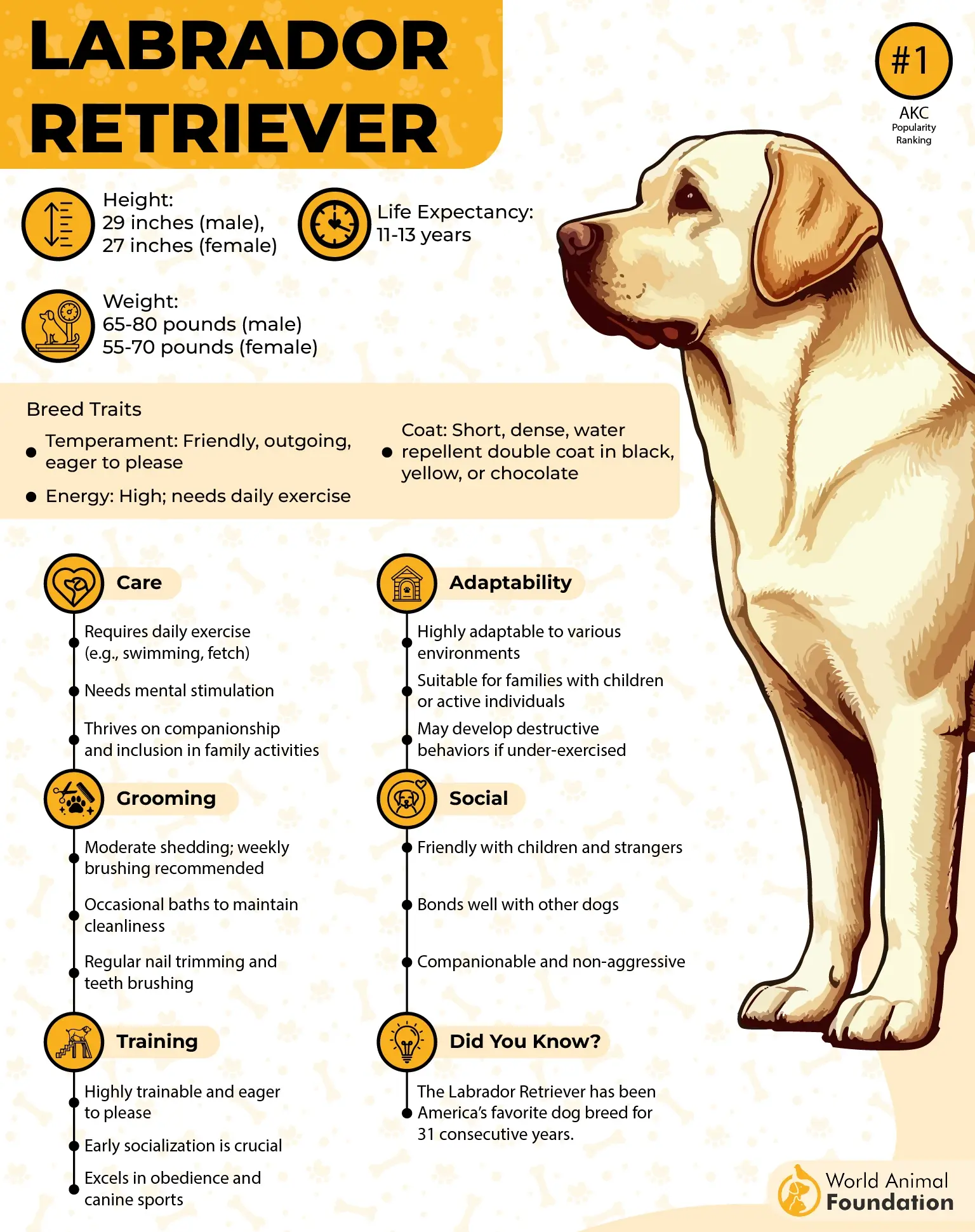
Temperament
Naturally affectionate and sociable, Labs are eager to please and quick to form bonds. Their high energy is balanced by a gentle spirit, and they’re known for being especially patient and tolerant, qualities crucial in therapy work.
While young Labradors may be a bit boisterous, their willingness to learn and their intelligence make training an engaging process. They’re also highly adaptable and get along well with other animals, adding to their suitability in diverse home environments.
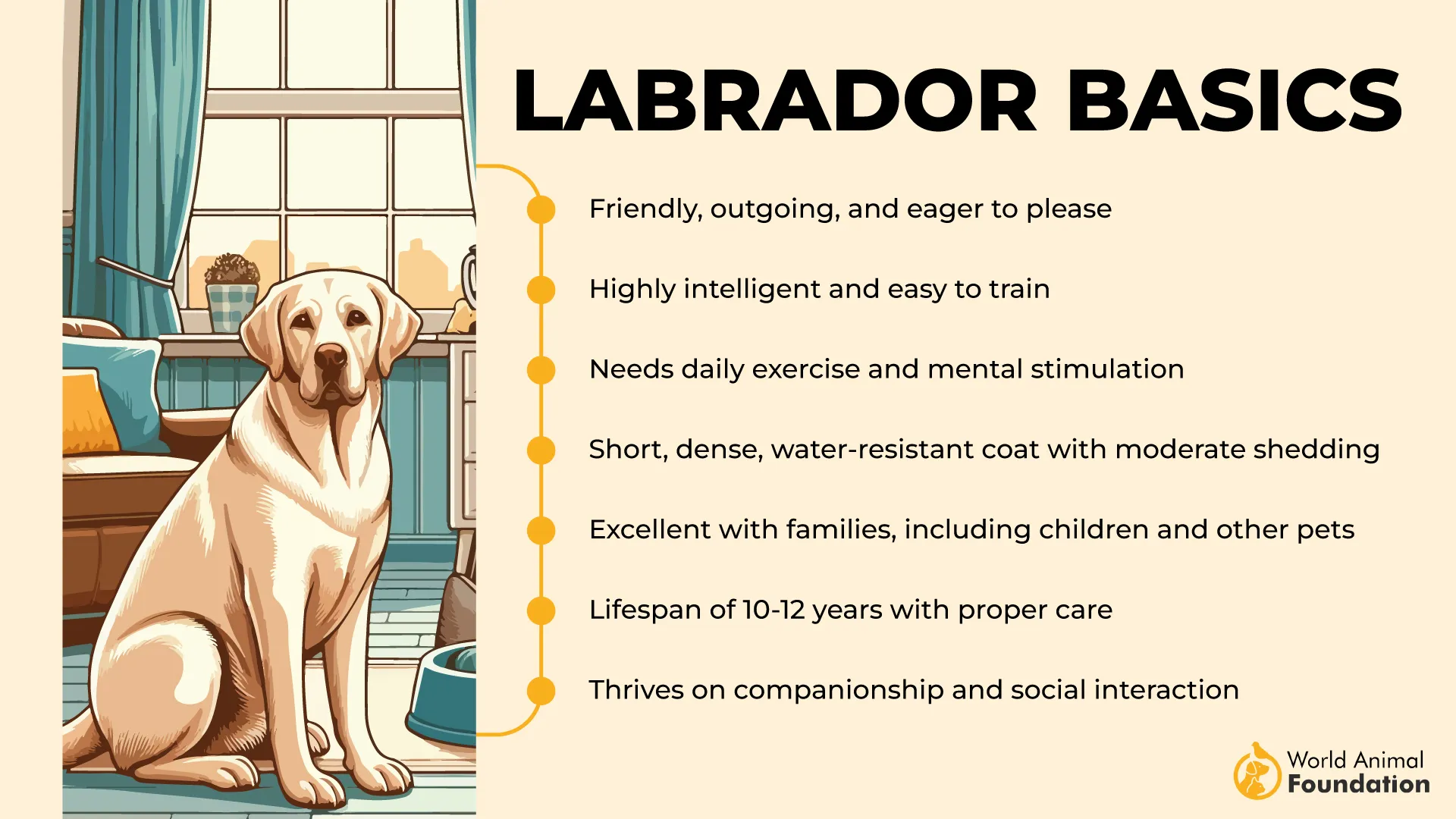
Fun Fact: In 2001, a service Lab named Endal saved his disabled owner through an incredible series of actions, retrieving his phone, seeking help, and even covering him with a blanket, earning him the title “Dog of the Millennium.”
4. Newfoundland
Newfoundland is often referred to as a giant breed with a gentle and calm nature. With their immense size and affectionate nature, Purina reports that the Newfoundlands are a wonderful fit for families seeking a calm, comforting therapy dog.
Their nurturing instincts and deep sense of loyalty shine in therapeutic settings, especially with children, where they often take on a guardian-like role. Despite their massive build, these dogs exude a quiet presence that brings comfort and reassurance, key qualities in any emotional support animal.
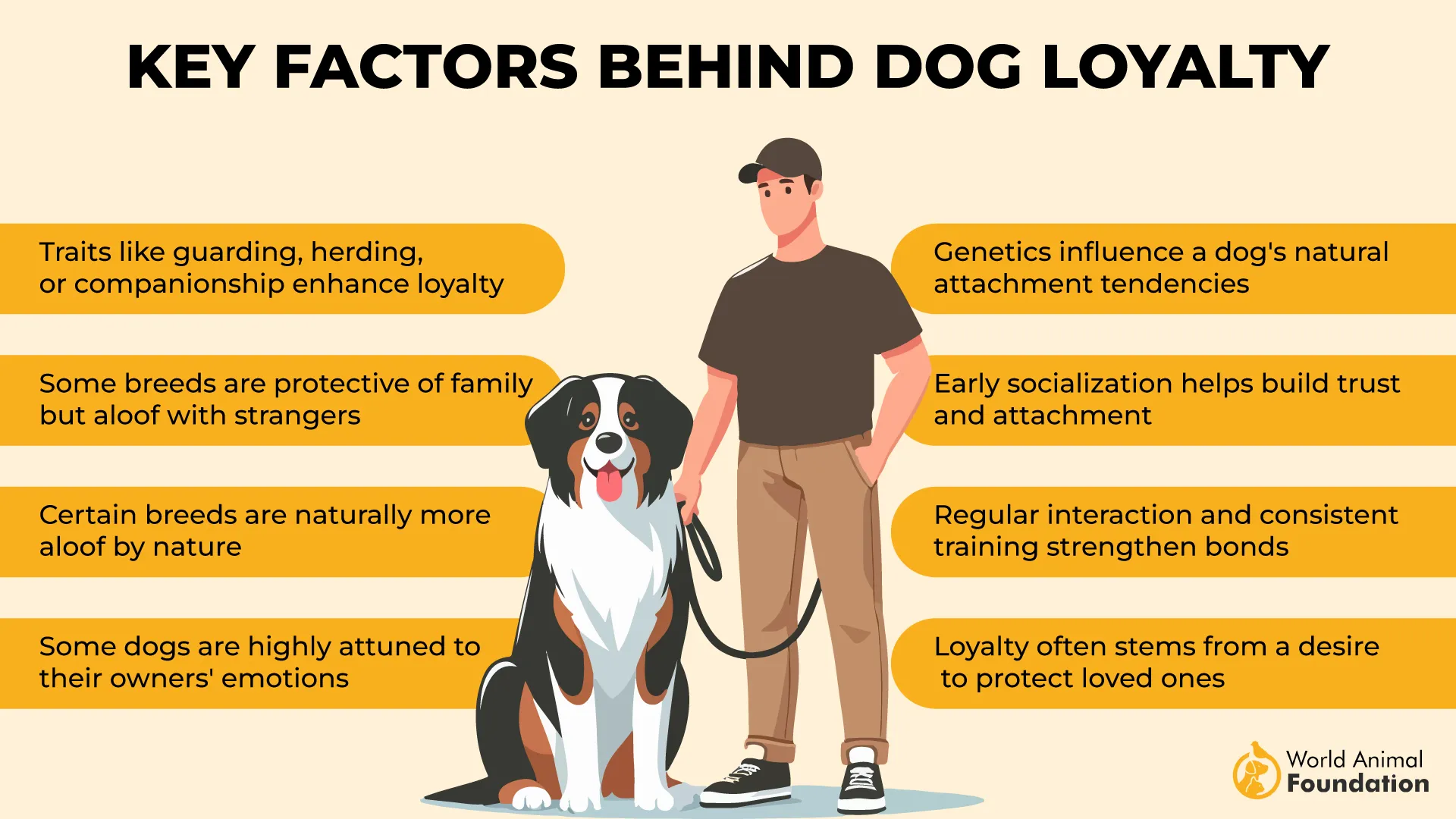
Temperament
Newfoundlands are known for their patient and affectionate demeanor. They form strong attachments to their families and are remarkably tolerant with kids, earning them the nickname “nanny dogs.” While not the most eager to follow commands, they respond well to consistent, positive training.
They tend to be calm indoors and protective without being aggressive. While generally friendly, they may require gradual introductions to new animals or unfamiliar children. Their serene temperament, combined with loyalty and gentleness, makes them ideal companions in both therapeutic and home settings.
Fun Fact: Though their massive size can seem daunting, Newfoundlands are so trusted around children that they’re often affectionately referred to as “nanny dogs” for their watchful and caring behavior.
5. Cavalier King Charles Spaniel
For families seeking a compact and affectionate therapy companion, the Cavalier King Charles Spaniel fits the role beautifully. This breed’s natural desire for closeness and gentle demeanor make it especially well-suited for emotional support roles, particularly with children or individuals needing quiet reassurance. Their lap-friendly size and love for human touch make them a comforting presence during therapy sessions.
Temperament
Cavaliers are known for their affectionate and easygoing personalities. They are sociable, thrive on human interaction, and tend to bond deeply with their families. Despite being small, they aren’t prone to the feisty behavior often associated with toy breeds.
Instead, they are polite, eager to please, and delight in both play and cuddles. Their low energy level and cooperative nature make them easy to train and manage, even for first-time dog owners. These dogs are perfectly content with short walks and lots of family time.
Fun Fact: Despite their dainty size, Cavaliers love engaging in small tasks and will happily follow their owners around, ever ready to offer comfort and companionship.
6. Bichon Frise
The Bichon Frise is a natural fit for families seeking a gentle and great therapy dog, especially in smaller living spaces. Their sociable nature and eagerness to be close to their humans make them especially comforting companions.
Their adaptability and affectionate behavior lend themselves well to therapeutic environments where emotional sensitivity is key. They thrive on human interaction and quickly become cherished members of any household.
Temperament
Bichons are cheerful, affectionate, and charmingly playful. They enjoy companionship and tend to get along effortlessly with both people and pets. While they have bursts of lively energy, they don’t demand intense physical activity, making them well-suited for calm, consistent routines.
Early socialization fosters their comfort around new faces, which is valuable in a therapy setting. Though naturally friendly, they benefit from regular structure to reinforce good behavior and maintain their confidence.
Fun Fact: Despite their fluffy appearance, Bichons are not high-energy dogs, but they do need consistent grooming every four to six weeks to keep their coat in good shape.
7. Pug
Despite their compact frame, these small dogs offer a wealth of emotional support and companionship, making them an unexpected but excellent candidate for family therapy dogs. Their irresistible charm and constant desire to be close to their humans foster deep emotional connections, ideal for individuals needing comfort and reassurance.
Especially well-suited for small living spaces, these service dogs are low-maintenance in terms of activity needs, thriving on affectionate attention rather than strenuous exercise.
Temperament
Endlessly devoted and people-oriented, these excellent therapy dogs form tight bonds with their families and love being the center of attention. Their mellow nature and cheerful personalities make them perfect cuddle companions, often content just to snuggle beside someone for hours.
Gentle and approachable, they’re wonderful with children and are not easily overwhelmed, which makes them calming presences in stressful situations. While they’re clever and affectionate, they don’t enjoy being left alone for long, as they crave constant companionship.
Fun Fact: Though too small for heavy-duty service tasks, their petite size actually makes Pugs ideal therapy dogs for children and individuals who may find larger breeds intimidating.
Conclusion
When it comes to choosing a companion for animal-assisted therapy, not all dogs are created equal, but many shine in unique ways. Breeds like the Labrador Retriever, celebrated for its history as a guide dog and unmatched adaptability, and the charming Pug, whose affectionate and gentle demeanor makes it ideal for close emotional support, exemplify the essence of the best therapy dogs. These breeds demonstrate how certain breeds naturally excel in therapeutic roles, offering both emotional stability and reliable companionship in family settings.
While not all dogs are suited for service dog work or specialized roles like medical alert dogs or psychiatric service dogs, many become exceptional family therapy companions with proper therapy dog certification. Breeds such as the German Shepherd, known for their intelligence and loyalty, and the ever-popular French Bulldog, offer a different yet valuable type of support, especially for children and adults alike. Similarly, smaller breeds like the Yorkshire Terrier and Beagle can thrive in therapeutic roles, adding diversity to the popular therapy dog breed landscape.
Whether it’s passing the Canine Good Citizen test or simply being a warm presence, the canine world offers a wide spectrum of breeds fit for therapy. From active Border Collies to more laid-back companion dogs, families have plenty of popular dog breeds and other dogs to consider when seeking a healing paw.


